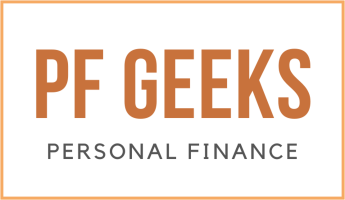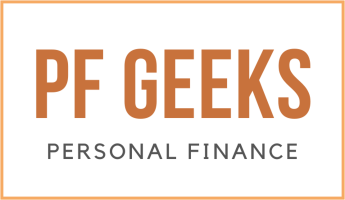I remember graduating from college and entering “the real world.” The college years often feel like the final flickers of childhood, so it can be daunting yet exciting to join the workforce.
Financially, you’ll be required to manage more than you ever have before.
So, what should you do to get started and build wealth? These 6 steps will help you lay a firm foundation each pay period — whether you want to just keep up with your bills or be able to retire early.
Contents
Negotiate and Understand Your Benefits
Your first major task in your new job will be to finalize the details of your employment compensation.

It’s important to be confident and believe in yourself during the negotiation, this will make the employer feel that you are capable for the role, and help you negotiate a better pay for yourself.
Negotiate Your Income
Dave Ramsey, one of the faces of the finance community, is known for his one-liners. When people with lower incomes call him and ask for his advice on getting out of debt, he’ll often reply that “You’re trying to dig out of a big hole with a small shovel!”
Your income is a powerful tool and, until you get promoted or find another job, the hiring process is your best opportunity to negotiate for a higher salary.
When I got my first job offer, I was disappointed by the initial salary. I was able to negotiate a $2,000 per year increase from the original offer. But, at the time, that was a meaningful increase. Two years later, I received another job offer and I was able to negotiate an additional $15,000!
One 2018 poll showed that only 39% of workers tried to negotiate a higher salary during their last job offer. Don’t be like the other 61% who didn’t even attempt to negotiate. As my grandfather likes to tell me, “if you don’t ask, you don’t get.” Remember, this is your chance to start digging with a bigger shovel.
Retirement Plans and Insurance Coverage
The company retirement plan, medical care and insurance benefits will end up being a significant part of the overall compensation of any young workers.
If you are comparing multiple job opportunities, don’t forget to look at the value of the health care benefits and other benefits you’ll be receiving.
Once you accept the job, ask HR for documentation on the retirement and health insurance plans and don’t be afraid to ask questions.
Choosing an inappropriate insurance plan can be an expensive mistake.
Other Benefits
Most large companies offer extremely under-utilized additional benefits.
For example, my current employer reimbursed 100% of the tuition for my master’s degree. This is a program that any salaried employee at my company is eligible for, but few take advantage of.
If you’re moving to a new city, ask about a relocation package.
Other possible benefits to ask about are paid volunteer days, access to a gym, free or reduced-price transportation, and included tech gear like a phone or computer.
Earn the Full Employer Match
If your company does offer an employer match, start your financial journey by at least earning the entire match portion. It’s free money and it’s part of your compensation for your work.
Here’s a simplified example. Let’s say you earn $40,000 per year for your whole career. Company A matches 100% of your contributions to your 401k account, up to 4% of your income. Company B has no match available.
To see the power of the matching program, let’s compare if you contributed 10% of your income at each company for 30 years at a 9% compounding interest or annual growth rate.
The 4% match plus the 10% you’re contributing means your bank account is getting 40% more contributed each paycheck.
| Company A — 4% match | Company B — no match | |
| Your contribution | 10% of your income ($4,000) | 10% of your income ($4,000) |
| The company’s contribution | $1,600 | $0 |
| Total annual contribution | $5,600 | $4,000 |
| Value after 30 years with 9% annual growth | $763,322 | $545,230 |
With the matching program your employer offers, you’ll end up with about 40% more money after 30 years. Over time, that will be a significant amount of spending money.
If your company offers a matching benefit, do your future self a favor and take advantage of it as soon as you begin receiving your first paychecks.
Start an Emergency Fund
Next, start saving and developing an emergency fund. Typically, you’ll just keep this financial cushion in an easily-accessible builder savings account. This can also be combined with a health savings account.
Your emergency savings will be critically important to help you avoid new debt and manage unexpected expenses.
Living paycheck-to-paycheck is normal in America (about 78% of Americans do it), but it’s a scary place to be financially.
This savings account will also help protect your assets (like your car, home, or investments) since you won’t be forced to sell them to cover emergency expenses.
Long-term, you’ll want to save enough to cover multiple months of expenses in case you experience an unexpected job loss. But anything is better than nothing. Try to save money, at least $1,000 to $2,000 before you move to the next step.
Later, you can work on topping off your fund to have around 6 months of expenses saved. This will be a great source of financial peace once you have it in the banks.
Pay Off High-Interest Debt
After you have a starter emergency fund established, make it a priority to pay off high-interest debt and financial burden like credit card debt and student loans. Just because your checking account is growing, doesn’t mean that you have spend all that money.
Personally, if your interest rate on any debt is higher than 6 or 7%, I would consider it to be a high interest rate. This will likely include credit cards and possibly car or student loans.
The reason this should be such a priority is because of opportunity cost.
By paying off the debt early, you’re avoiding accruing additional interest at that high rate. And at 7% or more, that’s a higher rate than you’ll get in a savings account!
Avoiding the 7% interest on a loan is also similar to the growth you would see in the stock market, but without the uncertainty — it’s certain you saved that 7%. Paying off high-interest debt aggressively and early on in your career is almost always the best use of your money.
Avoid Unnecessary Budget Black Holes
Start a zero based budget to help manage your cash flow as soon as you get your first paycheck. You don’t have to track every penny to see a real benefit from budgeting. Start with focusing on the big three — housing, food, and transportation.
Your housing is a fixed expense every month (either rent or a mortgage payment). Transportation and food tend to be fairly consistent, too.
Imagine if your rent is $800 per month, your car monthly payment plus gas and insurance is $400 per month, and your food costs you $600 per month (including eating out at restaurants).
That would be a total of $1,800 each month. Is that reasonable? It depends on what your steady income is!
In that scenario, if your take home pay is $2,000 per month, you’ll be stuck living paycheck to paycheck with little flexibility. If you have a steady paycheck and your income is much higher, those living expenses may be fine!
If you do find that you’re already struggling with the “big three,” your food budget is likely your best option for cutting back. You can always eat at home more often, cook in bulk, or choose lower-cost grocers like Walmart or Aldi if you need to create a little wiggle room.
If you can keep these three areas in check, you’ll gain a lot of flexibility in the other parts of your budget. If not, you may unintentionally lock yourself in to some impractically large payments that hinder you from reaching your savings goals.
Take Steps Towards Your Long-Term Financial Goals
Speaking of long-term goals, identify those goals and start working towards them as soon as your receive your very first paycheck.
Being young doesn’t put you at a disadvantage in preparing for the future. In fact, it’s just the opposite. If you’re in your 20s, you have decades until you retire and that time will help your investments grow rapidly.
If you’re already getting the employer match (from tip #1 above) and you have extra money in your budget available, increase your retirement account contributions even further. Traditional advice is to save 10-15% but you’ll only be helping yourself if you contribute even more.
The more you save, the more options you’ll have in the future and in case of any financial trouble. With as little as 20% or more, you can likely leave full-time work before normal retirement age!
Outside of retirement, take time to identify other financial goals. Want to take a big trip abroad or pay cash for a car? Those goals can be intimidating now, but a diligent monthly savings plan can make those goals possible.
What To Do With Your First Paycheck
Receiving your first paycheck is an exhilarating moment that marks the beginning of a new financial journey. However, it is crucial to understand the various components contributing to your paycheck and plan accordingly to ensure long-term financial stability. Here are a few things to do when you get your first paycheck:
Check Your Income Taxes
One of the most significant considerations is income taxes. The government withholds a percentage of your paycheck for federal and state taxes. The amount withheld depends on factors such as your:
- Income level
- Marital status, and
- The number of dependents.
To avoid surprises, it is vital to understand the amount that will be taken out and plan accordingly. A tax professional can assist in determining the expected tax liability and create a tax-saving plan.
Review Your Pay Stub
Reviewing your pay stub is essential to understanding your paycheck’s composition. It provides a comprehensive overview of how your paycheck was calculated, including the various deductions and contributions subtracted from your gross pay to reach your net pay.
Review your pay stub to comprehend how your paycheck is calculated and provide insight into how you can adjust your earnings accordingly. It can help you spot errors and ensure you’re being paid correctly.
Review Your FICA and Social Security Deductions
Another essential aspect to understand when analyzing your paycheck is the FICA (Federal Insurance Contributions Act) and Social Security taxes. A portion of your paycheck goes towards FICA. FICA is a payroll tax that helps fund essential programs like Social Security and Medicare.
Therefore, it is vital to understand the contribution amount that comes from your paycheck and its overall importance in funding critical government programs. The current FICA rate is 7.65%, which includes 6.2% for Social Security and 1.45% for Medicare. Your employer will withhold this amount from your paycheck and match your contribution.
Calculate Your Tax Bill
You may owe additional taxes when you file your tax return, depending on your overall income for the year. When you file your tax return, you’ll calculate your total tax liability for the year. If your employer withheld more than you owe, you would receive a refund. If they withheld less, you would owe additional taxes.
Keep this in mind as you plan your finances for the year, and consider setting aside some money from each paycheck to cover these potential taxes.
Start Investing
After accounting for all the necessary deductions, it is vital to consider investing the surplus. Investing is a great way to grow your wealth over time. It can be daunting, however, it is an essential component of long-term financial stability. Many different investment options are available, such as:
- Stocks
- Bonds, and
- Mutual funds.
It is important to research and consider your goals and risk tolerance before investing. Consider consulting with a financial advisor. This will help you determine the best investment plan for your financial goals and risk tolerance.
Plan Long-Term Goals
If you have a specific financial goal in mind, such as saving for a down payment on a house or a dream vacation, using your paycheck to start saving towards that goal is an excellent way to ensure that you are making progress towards your dreams.
Conclusion
In all areas of financial planning, the key is to clearly identify your financial situation and goals, begin saving and start taking steps towards them as soon as you get your first paycheck. With consistency and time, you’ll get there. Just be intentional and get started.

